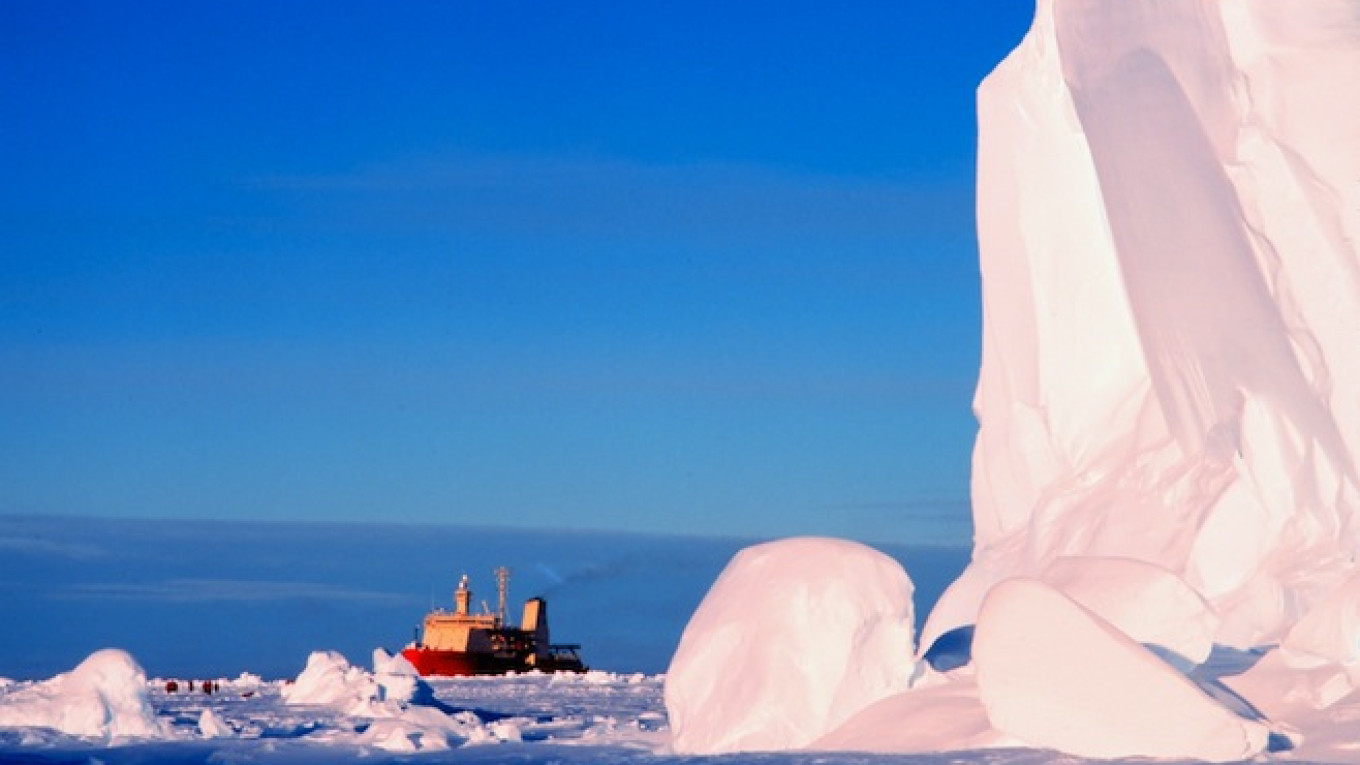Russia said on Tuesday it has resubmitted a claim to the United Nations for some 1.2 million square kilometers of the Arctic shelf, a drive to secure more of the mineral-rich region where other countries have rival territorial interests.
The Russian economy is overwhelmingly reliant on natural resources and the Arctic's estimated huge oil and gas reserves are expected to become more accessible as climate change melts and ice and technology advances.
This prospect has attracted other nations, including Norway, the United States, Canada and Denmark while international energy companies are planning large drilling campaigns.
"The Russian bid covers underwater area of some 1.2 million square kilometers extending for more than 350 nautical miles from the coast," the Russian Foreign Ministry said in a statement.
"A vast array of scientific data collected during many years of Arctic research serves to justify Russia's rights to this area."
The Arctic rush carries considerable climate risks, campaigners say. Greenpeace, which is calling for a protected sanctuary in the uninhabited area around the North Pole, said on Tuesday Russia's move was "ominous."
"The melting of the Arctic ice is uncovering a new and vulnerable sea, but countries like Russia and Norway want to turn it into the next Saudi Arabia," it said in a statement.
The United Nations' rejected Russia's original claim for the same territory more than a decade ago, asking for more research to back it.
Russian President Vladimir Putin has since made securing Russian claims to the Arctic a top priority and expanded Moscow's military presence there.
Russia says an underwater mountain range known as the Lomonosov Ridge, which stretches across the Arctic Sea, is part of its own Eurasian landmass. Hence, Moscow says, its Arctic shelf extends up to the North Pole.?
A Message from The Moscow Times:
Dear readers,
We are facing unprecedented challenges. Russia's Prosecutor General's Office has designated The Moscow Times as an "undesirable" organization, criminalizing our work and putting our staff at risk of prosecution. This follows our earlier unjust labeling as a "foreign agent."
These actions are direct attempts to silence independent journalism in Russia. The authorities claim our work "discredits the decisions of the Russian leadership." We see things differently: we strive to provide accurate, unbiased reporting on Russia.
We, the journalists of The Moscow Times, refuse to be silenced. But to continue our work, we need your help.
Your support, no matter how small, makes a world of difference. If you can, please support us monthly starting from just $2. It's quick to set up, and every contribution makes a significant impact.
By supporting The Moscow Times, you're defending open, independent journalism in the face of repression. Thank you for standing with us.
Remind me later.


